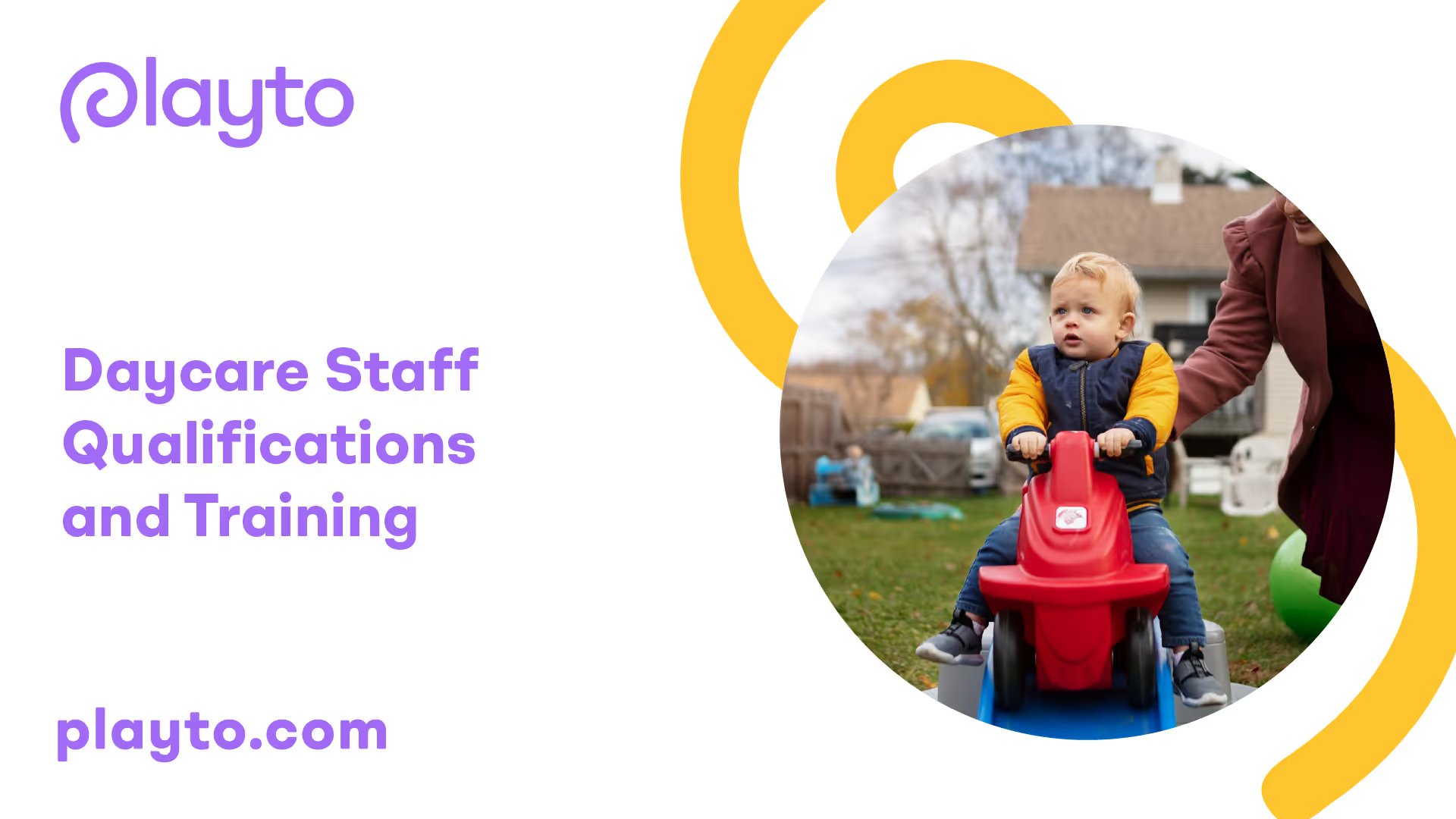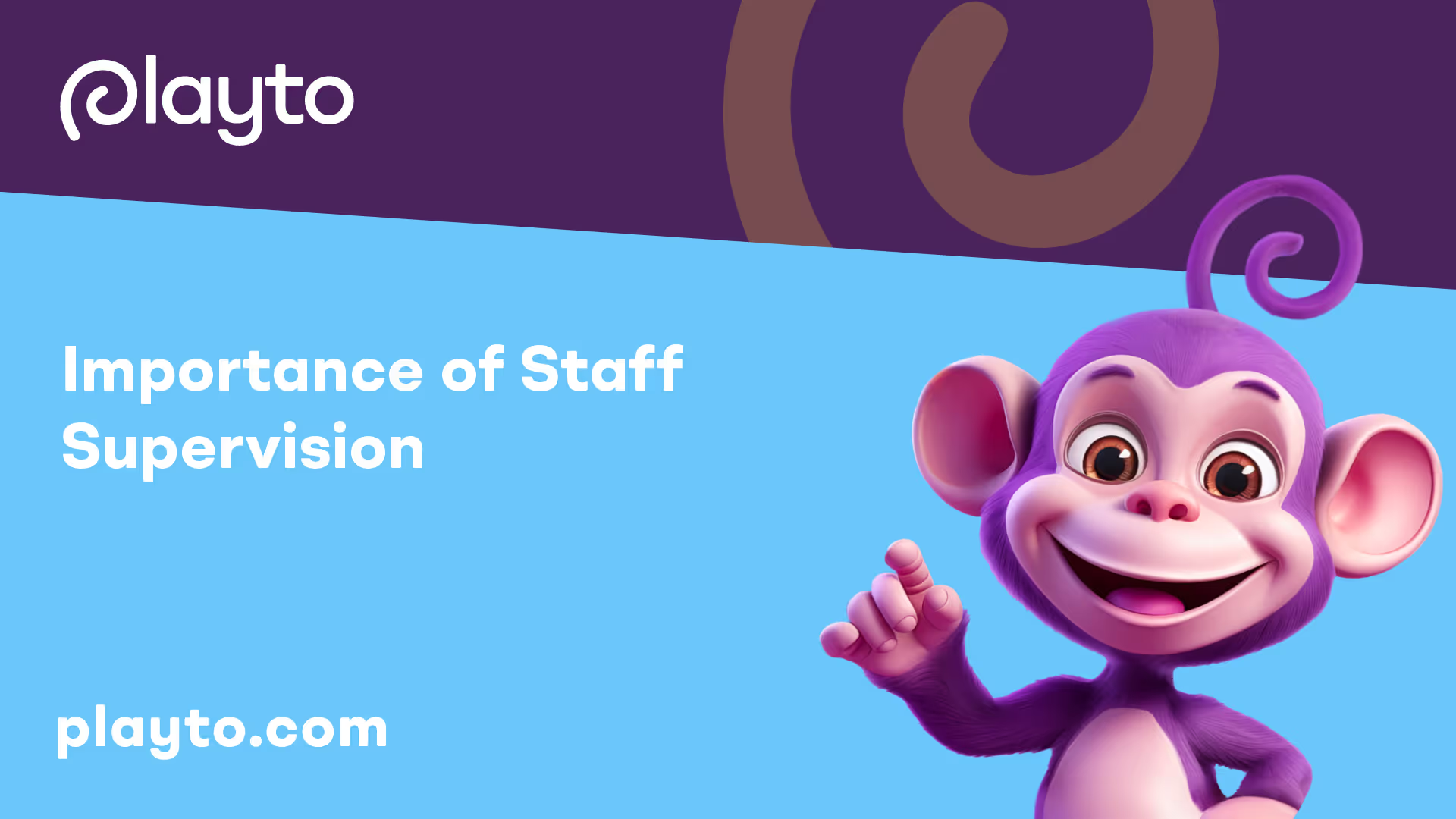Qualifications and Training Requirements
Ensuring that daycare staff possess appropriate qualifications and receive ongoing training is essential to providing quality care. Licensing and regulations set forth by governing bodies establish the minimum requirements for daycare providers and their staff [1]. These requirements vary from state to state, but they generally involve education, training, and certification in early care and education.

Licensing and Regulations
Licensed child care providers must meet specific qualifications and training requirements to operate a daycare facility. Many states require providers to complete early care and education training before working in or operating a childcare program. These regulations aim to ensure that daycare staff have the necessary knowledge and skills to provide safe and developmentally appropriate care for young children.
Continuing Education Opportunities
Continuing education is crucial for daycare staff to stay up-to-date with the latest best practices and educational trends in early childhood education. Ongoing training is necessary to reinforce existing knowledge and acquire new skills. Each state has different training requirements for child care providers, which often include topics such as CPR, first aid, safe sleep practices, and nutrition [3].
Continuing education opportunities provide daycare staff with the tools and knowledge they need to effectively support children's development and ensure their health and safety. These training programs cover various areas, including child development, behavior management, curriculum planning, and working with children with special needs.
It is important for daycare providers to prioritize ongoing professional development and offer their staff access to training programs and resources. By investing in their staff's education and training, daycare centers can enhance the quality of care and better meet the needs of the children and families they serve.
By adhering to licensing and regulatory requirements and actively participating in continuing education opportunities, daycare staff can continuously improve their skills and knowledge, ultimately providing a nurturing and enriching environment for the children in their care.
Benefits of Professional Development
Professional development plays a crucial role in the growth and success of daycare staff. By staying updated on the latest trends and techniques in education, as well as engaging in peer collaboration and learning, daycare staff can provide high-quality care and education to children.

Learning Trends in Education
Exposure to the latest education trends through professional development enables daycare staff to incorporate new methods into their curriculum and better support children and families in their programs. By staying informed about emerging research, teaching strategies, and best practices, daycare staff can continuously improve their skills and adapt to the evolving needs of children.
Through professional development workshops, courses, and conferences, daycare staff can gain insights into innovative teaching approaches, technology integration, and child development. These learning opportunities empower them to create engaging and effective learning environments for children, fostering their cognitive, social, emotional, and physical development.
Peer Collaboration and Learning
Professional development workshops and courses provide a platform for daycare staff to collaborate and learn from each other through peer-to-peer learning, which is an excellent way for teachers to enhance their skills [4]. By sharing experiences, exchanging ideas, and discussing challenges, daycare staff can benefit from the collective knowledge and expertise of their colleagues.
Peer collaboration not only expands their understanding of effective teaching practices but also enhances their problem-solving abilities. Through group discussions, brainstorming sessions, and collaborative projects, daycare staff can refine their teaching methods, gain valuable insights, and find innovative solutions to common challenges.
Enhancing Staff Performance
Investing in the professional growth of daycare staff has numerous benefits for both the staff members and the children in their care. Highly skilled teachers are more productive in early childhood educational settings, and professional development courses offer opportunities for teachers to acquire critical skills like communication, listening, collaboration, empathy, and patience.
By continuously improving their knowledge and skills, daycare staff can create supportive and enriching environments for children. They can implement effective behavior management strategies, tailor instruction to individual needs, and foster positive relationships with children and their families. As a result, children in their care can thrive and achieve their full potential.
Investing in the professional growth of daycare staff not only benefits the children but also the daycare center itself. By providing opportunities for ongoing learning and development, daycare centers can boost employee engagement and retention, creating a workplace culture that values professional development. This, in turn, contributes to a more stable and cohesive team, leading to enhanced program quality and better outcomes for children.
In conclusion, professional development is essential for daycare staff to stay updated on the latest education trends and collaborate with their peers. By continuously enhancing their skills and knowledge, daycare staff can provide high-quality care and education, creating a positive and enriching environment for children in their care.
Importance of Staff Supervision
In a daycare setting, effective supervision of the staff is of utmost importance to ensure the safety, well-being, and development of the children under their care. Proper supervision helps to maintain high standards of care and support the professional growth of staff members.

Ensuring Child Safety
Supervision plays a critical role in ensuring the safety of children in daycare settings. By closely monitoring the activities and interactions between staff and children, supervisors can identify and address potential safety risks. They can intervene promptly in situations that may pose a threat to the well-being of the children, preventing accidents, injuries, or any form of harm. Regular supervision also helps to ensure that staff members are following the daycare's discipline policies and adhering to safety protocols during field trips, as well as obtaining appropriate permissions as outlined in the daycare's policies on field trip permissions.
Enhancing Staff Performance
Supervision is not only vital for child safety but also for enhancing staff performance in daycare settings. Regular monitoring and evaluation of staff members' performance provide opportunities to identify areas of strength and areas for improvement. By providing effective feedback and coaching, supervisors can help staff members develop their skills, knowledge, and practices, ultimately leading to improved quality of care and better outcomes for the children under their supervision.
Creating a supportive and positive work environment is essential to foster staff growth and development. By building relationships with daycare staff and promoting a workplace culture of professional development, supervisors can encourage staff members to strive for excellence in their roles. This can result in improved job satisfaction, staff retention, and better outcomes for the children in their care.
To ensure effective staff supervision and performance evaluation, it is recommended to conduct regular evaluations every 6-12 months. These evaluations provide an opportunity to provide feedback, set goals, and promote professional development for staff members. By implementing a comprehensive evaluation process, daycare centers can continually assess and improve the performance of their staff, creating an environment that supports the well-being and development of both children and employees [5].
Training for Health and Safety
When it comes to daycare staff qualifications and training, a crucial component is ensuring that staff members receive comprehensive training in health and safety procedures. This training equips them with the necessary skills to provide a safe environment for the children under their care. Let's explore the essential topics covered in health and safety training for daycare staff, with a particular focus on pediatric first aid and CPR.
Essential Topics
Health and safety training for childcare providers encompasses a range of topics aimed at preventing and responding to potential risks and emergencies. Some of the essential topics covered in this training include:
- Pediatric First Aid: Pediatric first aid training is a fundamental aspect of health and safety training for daycare staff. It focuses on equipping staff members with the knowledge and skills to respond effectively to emergencies involving infants and children. This training covers a wide range of conditions specific to young children, such as allergic reactions, burns, choking, and more. By being trained in pediatric first aid, daycare staff can provide prompt and appropriate care when faced with a medical emergency.
- CPR (Cardiopulmonary Resuscitation): CPR training is another critical aspect of health and safety training for daycare staff. It teaches staff members how to perform life-saving techniques in the event of cardiac arrest or respiratory emergencies. By learning CPR, daycare staff can respond promptly and effectively in situations where a child's life may be at risk. This training includes techniques such as chest compressions and rescue breathing, tailored specifically for infants and children.
Pediatric First Aid and CPR
Pediatric first aid and CPR training are essential components of health and safety training for daycare providers. These courses provide staff members with the knowledge and skills to handle medical emergencies involving infants and children. By being trained in pediatric first aid and CPR, daycare staff can confidently respond to a wide range of situations, ensuring the well-being and safety of the children in their care.
To ensure that daycare staff receive the necessary training, there are various resources available. Online courses focusing on child care health and safety, as well as in-person and online pediatric first aid and CPR classes, are offered by organizations like the American Red Cross. Additionally, step-by-step guides and resources are available to assist daycare providers in implementing effective health and safety policies.
By prioritizing pediatric first aid and CPR training, daycare providers demonstrate their commitment to maintaining a safe environment and being prepared for any potential emergencies that may arise. This training not only enhances the safety of the children but also instills confidence in parents, knowing that their children are in capable hands.
In addition to pediatric first aid and CPR, daycare providers should ensure that their staff undergo regular training and updates on other health and safety topics, such as nutrition, age-appropriate feeding, child development, caring for children with special needs, and access to physical activity. By continuously updating their knowledge and skills, daycare staff can provide the highest standard of care and ensure the well-being of the children they serve.
For more information on other aspects of daycare staff qualifications and training, explore the remaining sections of our article.
Evaluation of Childcare Staff
In the daycare setting, the evaluation of childcare staff is a crucial aspect of maintaining high standards of care, ensuring the safety and well-being of children, and supporting the professional growth of staff members. Effective performance measurement, feedback, and coaching are essential components of this evaluation process.
Performance Measurement
Regular performance measurement allows daycare providers to assess the strengths and areas for improvement of their childcare staff. It provides an opportunity to evaluate staff performance in various aspects of their job, such as interaction with children, adherence to daycare policies, and ability to create a nurturing and educational environment.
Performance measurement in childcare settings should be done through a combination of methods, including written evaluations and in-person reviews. This comprehensive approach helps provide a complete view of staff performance and enables them to set clear, measurable goals for improvement. Evaluations should be conducted regularly, typically every 6-12 months, to provide consistent feedback and promote professional development.
Providing Feedback and Coaching
Providing effective feedback and coaching is a vital aspect of evaluating childcare staff. Feedback helps staff members understand their strengths and areas for improvement, enabling them to make necessary adjustments in their approach to childcare. Constructive feedback should be specific, actionable, and focused on the desired outcomes.
Coaching is an important part of the evaluation process as well. It involves guiding and supporting staff members to enhance their skills and performance. Through coaching, daycare providers can help their staff develop strategies and techniques that promote the well-being and development of children under their care. Coaching sessions can take the form of one-on-one meetings, group training sessions, or mentoring programs.
By offering regular feedback and coaching, daycare providers can foster a culture of continuous improvement among their staff. This not only enhances staff performance but also contributes to the overall quality of care provided to children in the daycare setting.
To create a supportive environment that encourages the professional growth of childcare staff, it's important for daycare providers to establish clear communication channels, encourage open dialogue, and provide opportunities for professional development and training. Building strong relationships with staff members is also essential for effective evaluation and fostering a positive work environment. For more information on building relationships with daycare staff, check out our article on building relationships with daycare staff.
In conclusion, the evaluation of childcare staff plays a crucial role in ensuring high-quality care for children in daycare settings. By implementing effective performance measurement, providing constructive feedback, and offering coaching, daycare providers can support the professional growth of their staff and create an environment that promotes the well-being and development of children.
Creating a Supportive Environment
Creating a supportive and positive work environment is crucial when it comes to daycare staff qualifications and training. By fostering employee engagement and cultivating a workplace culture that values professional development, daycare centers can enhance the overall quality of care provided to children.
Employee Engagement
Investing in the professional growth of daycare staff by providing ongoing learning opportunities can boost employee engagement and retention. When employees feel supported and encouraged to develop their skills and knowledge, they are more likely to be motivated and satisfied in their roles. This, in turn, translates to higher quality care for children. By building relationships with daycare staff and recognizing their contributions, centers can create an environment that fosters a sense of belonging and purpose.
Workplace Culture of Professional Development
A workplace culture that values and prioritizes professional development sets the stage for continuous growth and improvement. By offering training programs, workshops, and conferences, daycare centers can provide opportunities for staff members to expand their knowledge and stay up-to-date with the latest trends and best practices in early childhood education. This investment in professional growth not only benefits the individual staff members but also positively impacts the overall quality of care provided to children.
To create a supportive environment, daycare centers should encourage open communication, collaboration, and idea-sharing among staff members. This can be achieved through regular team meetings, brainstorming sessions, and professional learning communities. By fostering a culture of teamwork and mutual support, centers can create an environment where staff members feel valued and empowered.
By investing in employee engagement and creating a culture of professional development, daycare centers can ensure that their staff members are equipped with the knowledge and skills necessary to provide high-quality care for children. This supportive environment not only benefits the staff but also contributes to improved outcomes in childcare settings.
For more information on related topics, you can refer to our articles on building relationships with daycare staff, daycare discipline policies: what to expect, daycare field trips: safety and educational value, and daycare policies on field trip permissions.
